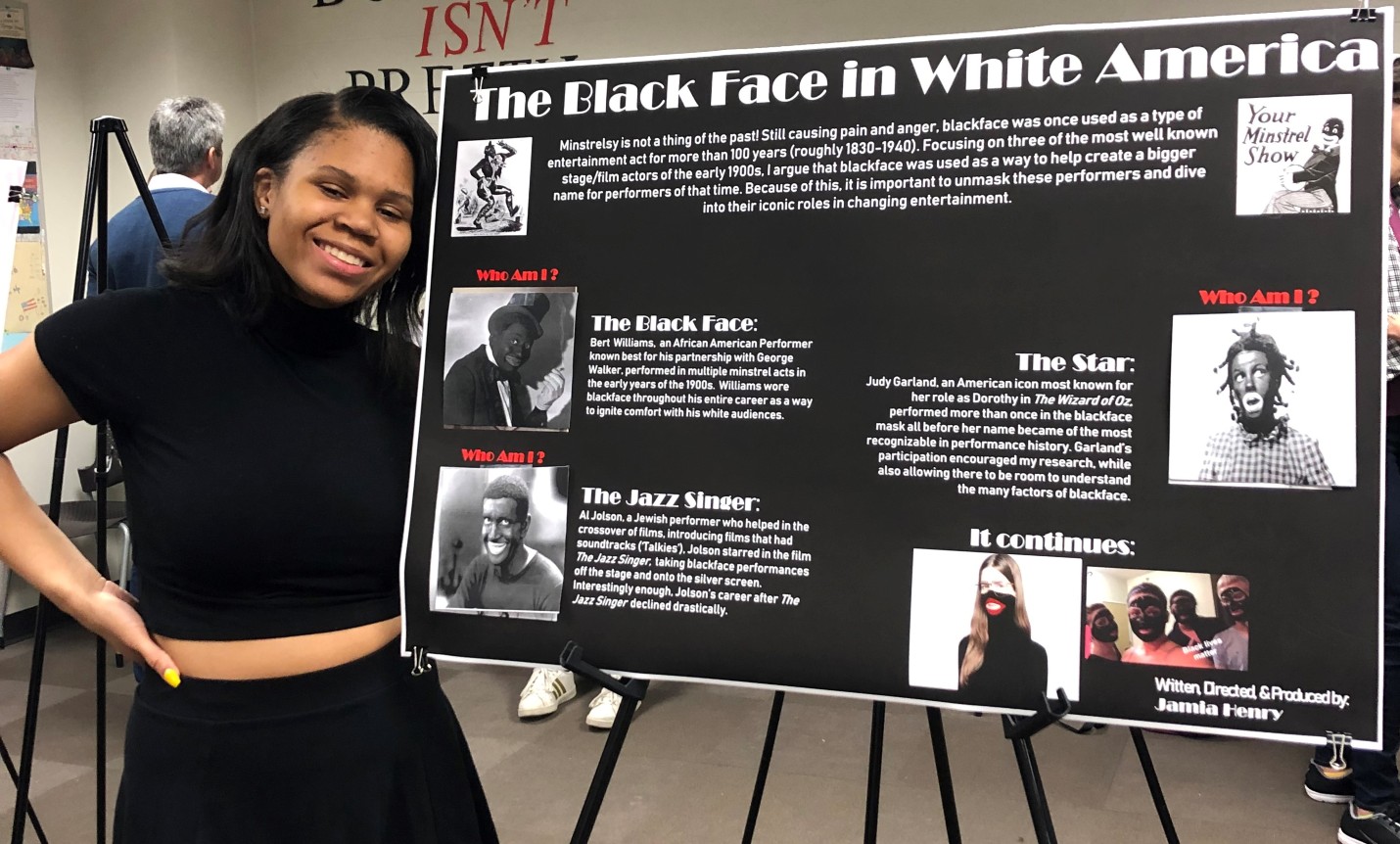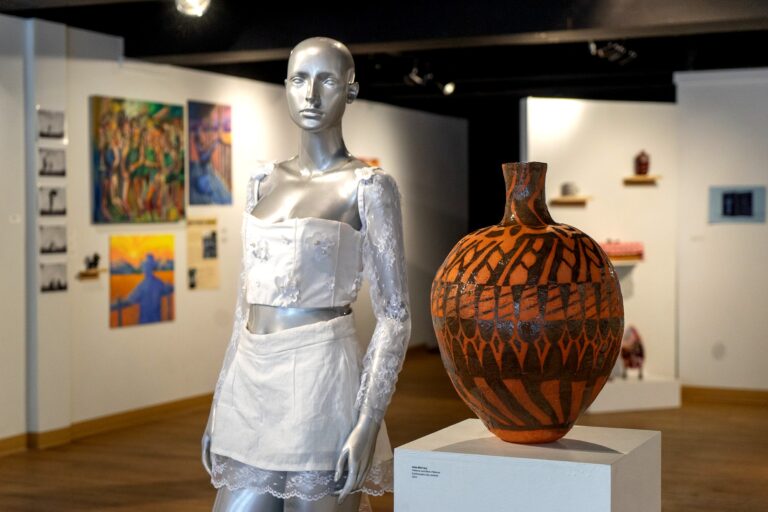When the COVID-19 pandemic prompted Michigan State University to switch to remote learning, Jamia Henry went home to Detroit to attend classes online and to be with her mom who was not in good health. Her mom soon passed away and Henry went through a bout of depression. Despite everything, Henry resolved to finish school and make her mother proud.
That goal will soon become a reality as Henry graduates this May with a bachelor’s degree in Arts and Humanities and a minor in African American and African Studies.
Looking back on her time at MSU, Henry recalls how she originally set out to attend a historically Black college or university but decided to stay close to home as her mother’s health declined. Henry talked to MSU recruiters who visited her high school and knew then that she wanted to be a Spartan. She applied to be a Sociology major, just like her mom.

As a high school student at Detroit School of Arts, Henry always enjoyed history and learning how the world works. She wanted to learn more and to contribute to social and cultural change. Shortly after she was accepted at MSU, she talked with another recruiter from MSU’s Residential College in the Arts and Humanities (RCAH) and switched her major to Arts and Humanities.
Once she as settled on campus, Henry added a second major in Human Development and Family Studies (HDFS). By combining RCAH and HDFS, Henry found her passion in helping community. Although she was happy with her two programs and felt she was on the right path, Henry still felt something was missing.
“Sometimes, I was the only Black person in my classroom,” she said. “I wanted to find a class or classes where I could be in a room with other Black educated people, who wanted to learn about the history that had been erased and stolen from us.”
“AAAS courses have given me a lot of tools I can use in the future. Just seeing these Black women professors teaching me about my history and social issues of today have influenced how I want to influence other generations.”
Jamia Henry
Henry heard about the new and emerging curriculum offered by the African American and African Studies program in MSU’s College of Arts & Letters and, in 2020, she took an introductory course that focuses on Africa and what life was like before colonialism. The following semester, she enrolled in a course that explored the start of slavery and the transition into the 20th century.
She often applied what she learned in her AAAS classes to discussions in her Arts and Humanities courses and said she felt it was her contribution toward building a more inclusive learning community, as well as her obligation to speak up about Black issues.
“In Arts and Humanities, we deal a lot with philosophy, and social movements, and how people interact with one another,” Henry said. “I found AAAS courses strengthened my understanding by highlighting all the things we’ve done to overcome injustices.”

All along, through every potential roadblock or challenge, Henry worked, volunteered, and persevered. For the past three years, she has worked part-time at the Motown Museum, first as a tour guide, and now in the programming area as the museum undergoes renovation. She also volunteered at an assisted living facility and worked in food service during her freshman year.
Henry remained on the double major track until her last year at MSU, dropping HDFS so she could graduate in four years. Now, in her final semester, she is completing a course load that includes four classes from the new Department of African American and African Studies, and an independent study through RCAH. All her courses, she said, are taught by women of color.
Henry said her MSU education gives her a foundation to pursue a career with purpose, and a way to address issues that affect oppressed groups and marginalized communities.
“The way Jamia Henry takes such initiative to invest in herself personally, academically, and professionally is quite admirable. What is also noteworthy is how Jamia is devoted to caring for her community that is growing within AAAS.”
Yvonne Morris, Academic Specialist in AAAS
“AAAS courses have given me a lot of tools I can use in the future,” she said. “Just seeing these Black women professors teaching me about my history and social issues of today have influenced how I want to influence other generations.”
Yvonne Morris, Academic Specialist, is one of the AAAS faculty members who has worked with Henry.
“The way Jamia Henry takes such initiative to invest in herself personally, academically, and professionally is quite admirable,” Morris said. “What is also noteworthy is how Jamia is devoted to caring for her community that is growing within AAAS. Granted she is graduating, she still is encouraging students behind her to be involved in not just AAAS but on campus as well. She is eager to continue to support the Department, its initiatives, and our students as we grow even in her departure. I am privileged and honored to witness what she will achieve in the world post-graduation.”
Written by Ann Kammerer


